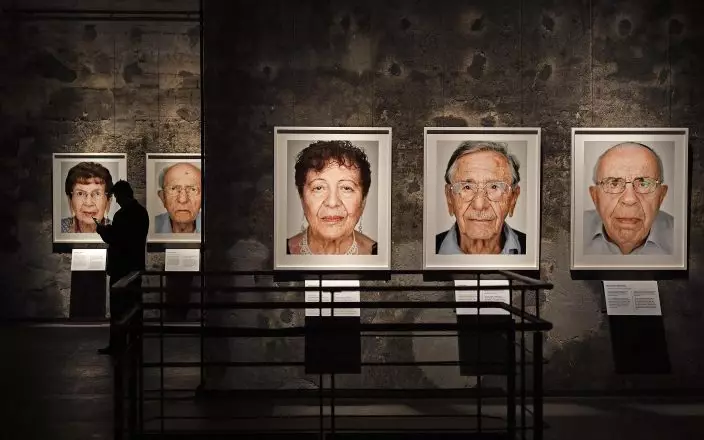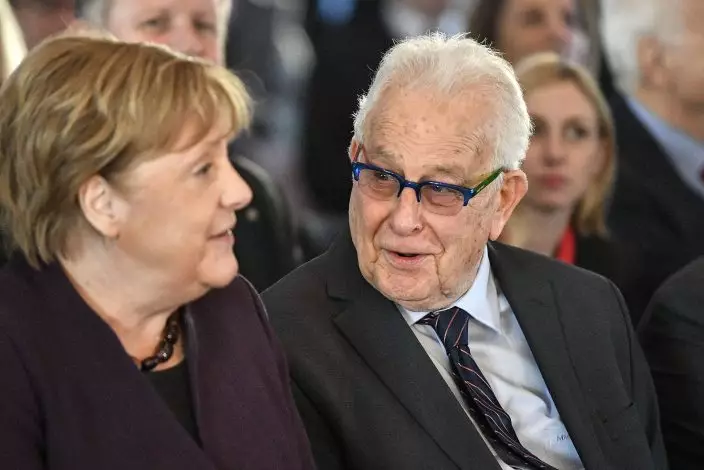Poland has appealed to Russian President Vladimir Putin to refrain from using World War II and Holocaust victims for current political goals and pointed to wartime documents in which the Polish government called on the Allies to save Jews.
Polish Deputy Foreign Minister Szymon Szynkowski vel Sek made the appeal Tuesday before a conference in Israel this week to mark 75 years since Soviet troops liberated the German Nazi death camp of Auschwitz-Birkenau.
Putin, who will be one of the key speakers, recently alleged that Poland bears some blame for the war and accused Poland's government of the time of anti-Semitism. Poland's president decided to boycott the conference, saying he wasn't offered a chance to speak.

A man walks beside photos of the exhibition 'Survivors - Faces of Life after the Holocaust' at the former coal mine Zollverein in Essen, Germany, Tuesday, Jan. 21, 2020. The world heritage landmark Zollverein shows 75 years after the liberation of the Nazi death camp Auschwitz-Birkenau, 75 portraits of Jewish survivors, photographed in Israel by German artist Martin Schoeller. (AP PhotoMartin Meissner)
Szynkowski vel Sek said that if distortions and untrue allegations are repeated at the conference, Poland will point to historic documents and facts to counter them.
He named efforts by Poland's resistance and the government-in-exile in London to gather and share with world leaders the facts about the mass extermination of Jews by occupying Nazi Germany.
One such document is Poland's report on the extermination of Jews that various government leaders received in 1942, when Auschwitz-Birkenau was operating.

German chancellor Angela Merkel sits beside Holocaust survivor Naftali Furst, right, during the opening of the exhibition 'Survivors - Faces of Life after the Holocaust' at the former coal mine Zollverein in Essen, Germany, Tuesday, Jan. 21, 2020. The industrial world heritage landmark Zollverein shows 75 years after the liberation of the Nazi death camp Auschwitz-Birkenau, 75 portraits of Jewish survivors, photographed in Israel by German artist Martin Schoeller. (AP PhotoMartin Meissner)
From 1940-45, around 1.1 million people, mostly Jews from across Europe, were killed at the camp.
The war began in 1939 with Nazi Germany's military invasion of Poland, followed two weeks later by the Soviet invasion.


